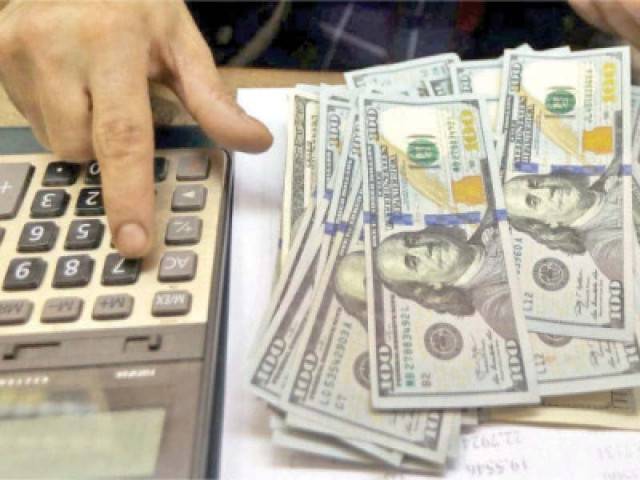Currency market turns positive
Arrival of $2b Saudi loan props up rupee that gains 0.44% at Rs278.57 per dollar

The receipt of a fresh loan of $2 billion from Saudi Arabia has turned sentiment positive in the currency market, which helped Pakistani rupee appreciate against the US dollar from a two-week low and end a two-day losing streak.
The State Bank of Pakistan (SBP) reported on Tuesday that the rupee strengthened 0.44%, or Rs1.23, to Rs278.57 against the greenback in the inter-bank market.
In the open market, the rupee regained 0.35% of its value, or Rs1, at Rs282/$, according to the Exchange Companies Association of Pakistan.
The currency’s improvement encouraged the gold pricing body to reduce the precious metal’s price by 2.15%, or Rs4,500, at Rs204,500 per tola (11.66 grams), an almost four-month low.
Earlier, the rupee depreciated at a fast pace over the past two days on speculation that the demand for US dollars was on the rise for clearing the import backlog and that the illegal Hawala and Hundi operators were paying a notably higher price for greenback purchase from people.
As a result, the currency resumed trade under growing pressure on Tuesday morning, hitting a new two-week low at Rs281.50/$ before Finance Minister Ishaq Dar announced that the State Bank of Pakistan (SBP) had received $2 billion in fresh financing from Saudi Arabia around midday.
Talking to The Express Tribune, Arif Habib Limited Chief Executive Officer Shahid Ali Habib said that fresh inflows of $2 billion from the kingdom gave confidence to the market and helped the rupee gain ground.
A highly anticipated IMF executive board’s approval of a new $3 billion loan programme for Pakistan on Wednesday also supported the rupee’s recovery, said Pak-Kuwait Investment Company Head of Research Samiullah Tariq.
Both experts projected that the rupee would stabilise in the range of Rs275-280 to a dollar in the short to medium run ahead of the receipt of additional financing from multilateral creditors and friendly countries.
They said that the IMF’s first tranche of $1.1-1.2 billion was expected to land in the next couple of days after the executive board’s formal nod.
Habib estimated that Pakistan would receive a cumulative $4-5 billion in new financing over six months, which would prop up foreign exchange reserves to around $7.5 billion by the end of December 2023.
The reserves are currently standing at a critically low level of $4.4 billion, providing around one month of import cover.
He said that the rupee would also get support from the projected nominal current account deficit of $250-300 million a month in the first six months (Jul-Dec) of current fiscal year 2024, with total deficit of $1.5-1.7 billion in first half.
As new loans are in the pipeline, Pakistan has made arrangements to repay the maturing foreign debt of $9.5 billion by the end of 2023.
Tariq said that fresh inflows would strengthen the government’s capacity to gradually reopen all imports to support economic activities and continue to repay foreign debt on time. “The year will see the economy stabilising compared to an underperforming economy in FY23.”
He clarified that new loans would only be spent on debt repayment and stabilising the foreign exchange reserves while imports would be financed through export earnings and workers’ remittances.
The currency endured a historical drop of 28% (or Rs81) at Rs286/$ in previous fiscal year 2023 amid a stalled $6.5 billion IMF loan programme, which ended prematurely on June 30, 2023.
Market talk suggests that gold may continue to shed value in rupee terms over a stable outlook on the currency.
All Pakistan Saraf Gems and Jewellers Association member Abdullah Abdul Razzak said the other day that gold may find support in the range of Rs190,000-195,000 per tola in the short term owing to currency weakness in the open market.
Published in The Express Tribune, July 12th, 2023.
Like Business on Facebook, follow @TribuneBiz on Twitter to stay informed and join in the conversation.



















COMMENTS
Comments are moderated and generally will be posted if they are on-topic and not abusive.
For more information, please see our Comments FAQ